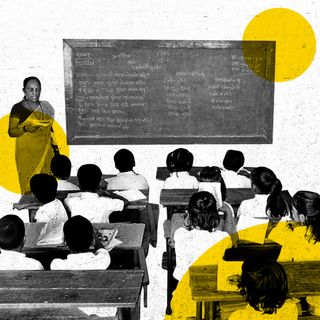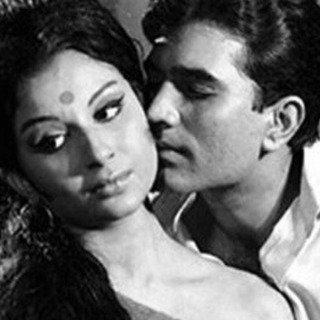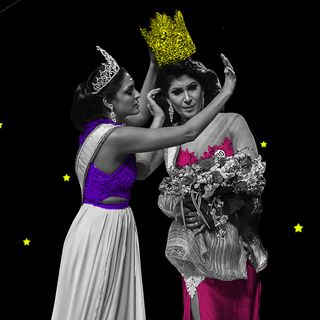A disco song from the 1970s has made its way into the Covid culture, but it’s not all about nostalgia and reminiscing. Two medical students from Kerala, Naveen Razak and Janaki Omkumar, shared a video of them busting moves to the classic “Rasputin” song two weeks ago; the video has since inspired a viral trend, dance-off battle, government message, and as one would expect, a relentless rightwing bogey.
Their video was in response to the global “Rasputin” challenge, which has people dancing to the song and posting videos. It started out as a TikTok trend, but in India, Razak and Omkumar’s video ended up making rhythmic waves for three reasons. One, it put on display the endearing spectacle of dancing doctors, whichlifted the spirits of a discouraged nation. Videos of healthcare workers dancing have been a pandemic favorite over the last year, mostly as it humanizes frontline workers as people more than simply hazmat suits and PPE kits.
Two, it became the focus of hate — and equivalent resistance. In direct contrast to the love this popular video received, a stream of hate quickly emerged in tandem over the last week, making claims of ‘dance jihad.’ This section of the internet had taken issue with the religious identities of Razak and Omkumar, alleging some kind of foul play about the relationship between the two. These comments stand out in their communal color: An advocate, whose post was reshared by radical right-wing groups who echo his sentiment, said, “I smell something wrong here.”
But, as the laws of physics remind us, for every action, there is an equal and opposite reaction. To respond to the hate, other medical students uploaded their own dance videos with the same choreography to “Rasputin” as a show of solidarity with the original two. In a video posted by the college union of Thrissur Medical College, the caption read: “If the intention is hate, then the decision is to resist. #resisthate.” The hashtag StepWithRasputin has become home to similar performances: medical students took up the “Rasputin” challenge as a means to protest.
Congress leader Shashi Tharoor was eager to give this his stamp of approval: “These kids deserve applause and encouragement, instead of the Hindutva venom being spewed at them because of their different religions. They ooze both talent & comradeship, the best of Young India. And they will make empathetic doctors one day!” he sharing a quirky video of two vials doing the “Rasputin” dance as a way to encourage people to take up the vaccine.
Lastly, the “Rasputin” dance challenge is also a reminder of the “nostalgia effect” the pandemic has had: interest in older things and ‘better’ times has people looking back to old songs for comfort. A British study noted that listening to old music was a nostalgic trigger for 41% of people it surveyed; people were using nostalgia to generate feelings of happiness, comfort, and relaxation. A separate study published in journal Covid Economics by the Centre for Economic Policy Research in the U.K. solidified this trend of listening to nostalgic music. The 1976 disco classic by the German band Boney M has a global cult following — and a peculiarly Indian one, too. Manish Gaekwad wrote in Scroll.in of the many ways Indian films over the years have borrowed Boney M’s tunes; once, an Indian army orchestra played “Rasputin” too, giving the song a “subcontinental twist.”
There’s something about the goofy disco tune that we all have fond memories of, and this may be precisely why it’s such a perfect vehicle for challenging divisive communalism; one, too, that channels nostalgia of a better time does the double work of linking secularism with happier days. Maybe this is reading too much into it, but we’re living in a time when hope is in short supply.
Whatever the reason the song is so popular in India, the message seems to be one: hey, hey, hey, hey, don’t ruin a good thing with your hate.




